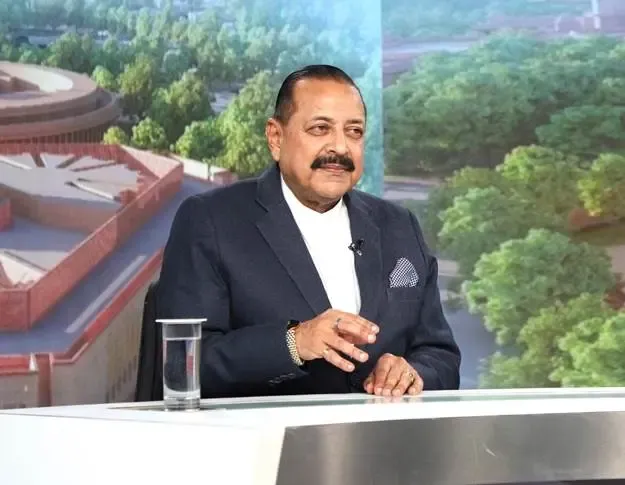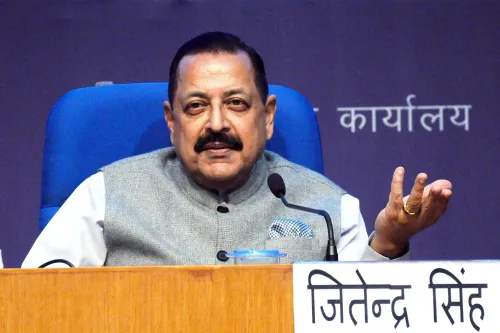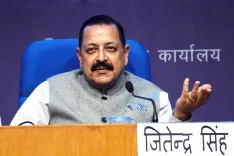Indian Space Economy Expected to Reach $44 Billion in Next Decade: Dr. Jitendra Singh

Synopsis
Key Takeaways
- India's space economy projected to hit $44 billion.
- Key missions include Gaganyaan, Chandrayaan-4, Shukrayaan, and Indian Space Station.
- Startups and FDI play a crucial role in technological advancements.
- India is pioneering in the bio-economy with its BIO-E3 policy.
- Mission Karmayogi transforms governance to be more citizen-centric.
New Delhi, Jan 21 (NationPress) Over the coming decade, India's space economy is anticipated to reach $44 billion, as stated by Union Minister of State (Independent Charge) for Science and Technology, Dr. Jitendra Singh, on Tuesday.
During a special segment on Sansad TV, the Minister pointed out India's significant advancements in the space domain, which commenced with the liberalization of the sector for private investments.
"The space economy has expanded to $8 billion and is set to reach $44 billion in the next ten years," Singh noted. "Key developments such as the indigenous Gaganyaan Mission, the forthcoming Chandrayaan-4 (2027), Shukrayaan (2028), and the Indian Space Station (2030) illustrate India’s strong trajectory in this field," he added.
The Minister also praised startups and foreign direct investment (FDI) for driving innovation, citing missions like SPADeX that enhance docking capabilities, representing a significant technological leap. He underscored the Vyom Mitra robo mission as a step towards human space exploration.
Additionally, Singh discussed the advancements in India’s biopharma sector, along with the country's achievements in governance and climate action. He asserted that biomanufacturing and bio-foundries will be pivotal in fostering the Fourth Industrial Revolution.
"India’s bio-economy, supported by rich resources ranging from the Himalayas to the coasts, is a key growth driver. As one of the pioneer nations with a dedicated bio-economy policy, India is positioned to lead global innovation in recycling, manufacturing, and startups in this sphere," Singh remarked, adding that "India is among the first countries to develop its BIO-E3 policy."
Singh also highlighted the transition to citizen-focused governance through initiatives like Mission Karmayogi, which are transforming bureaucracy by focusing on role-based capacity building. "Digital innovations, such as the face-recognition-enabled digital life certificate and dynamic online modules, have significantly simplified citizens’ lives," he stated.
He reaffirmed India's dedication to tackling climate change and addressing its diverse climatic challenges, while emphasizing India's leadership in preventive healthcare and adherence to global standards in health and environmental matters.
"India has established itself as a trustworthy partner on the global stage, driven by collaborative efforts, transparency, and innovation. The supportive atmosphere fostered under PM Modi’s leadership has transformed the nation into a hub for startups, businesses, and industries, reinforcing its status as a leader in technology, sustainability, and governance," concluded the Minister.









